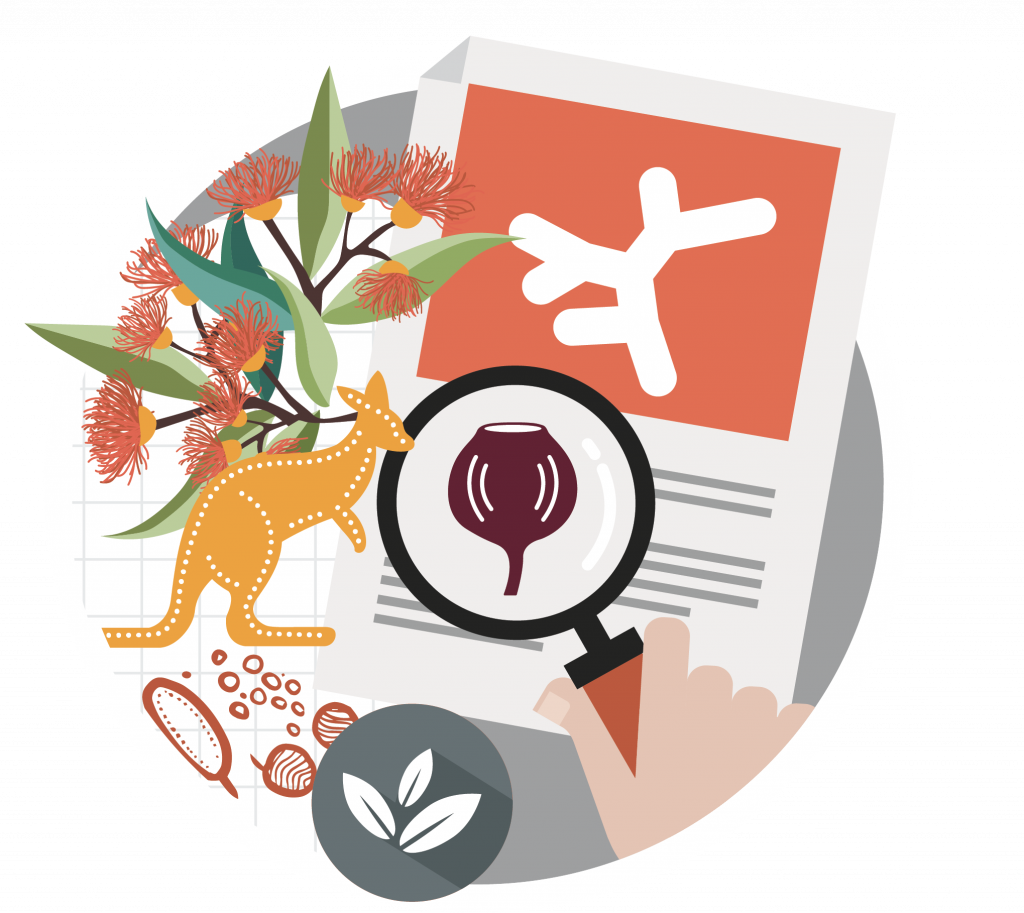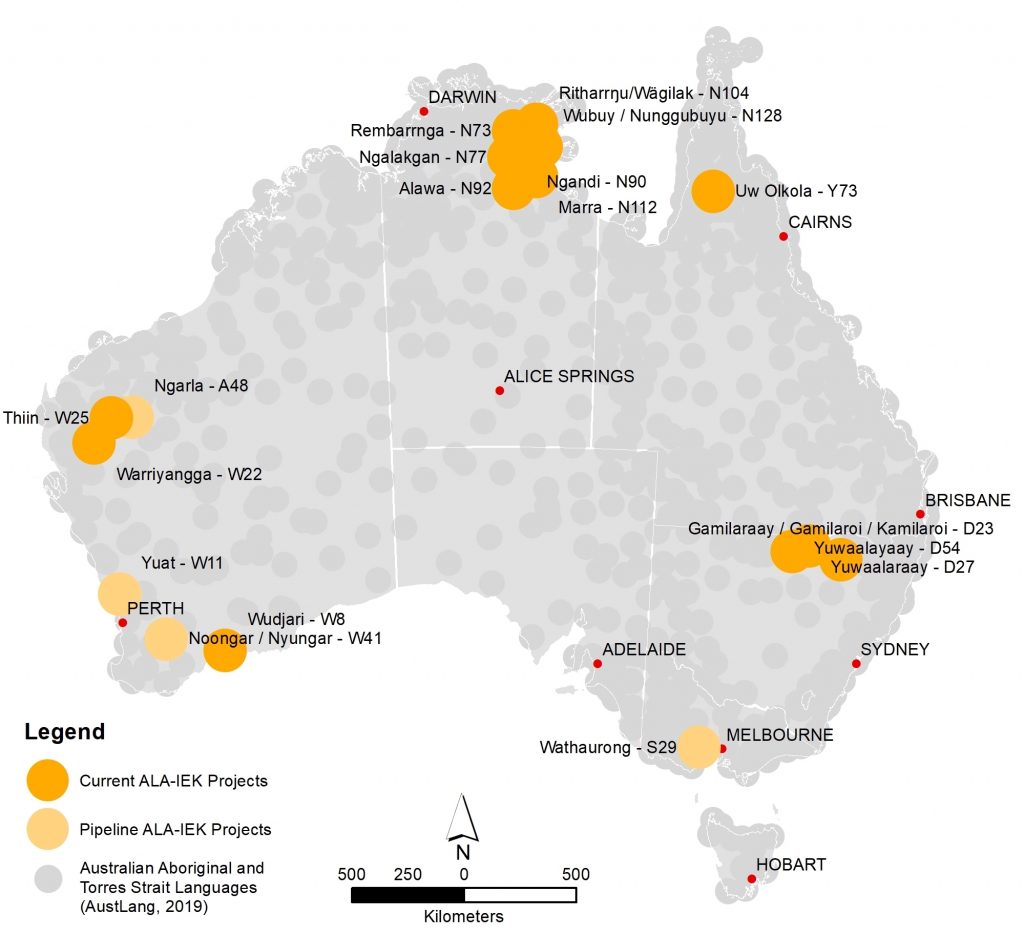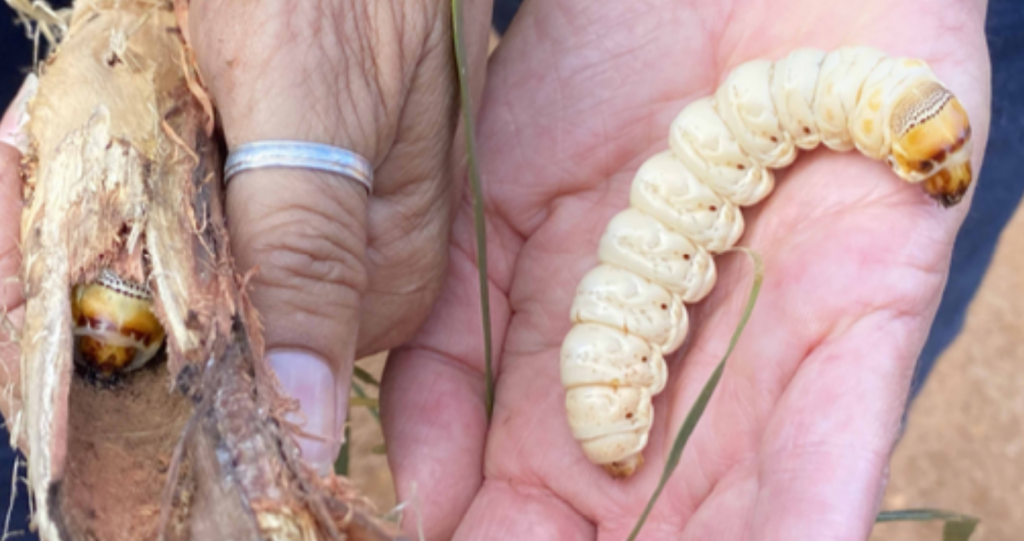In partnership with Indigenous communities working on Country, the ALA is exploring the role of information management platforms in bridging the gaps between traditional and western science knowledge for plants and animals and supporting the health, wellbeing and empowerment of Aboriginal and Torres Strait Islander peoples.
Overview

The ALA’s Indigenous Ecological Knowledge (IEK) program of work recognises the essential nature of a collaborative approach, and aims to provide tools to enable and empower greater Indigenous participation in biodiversity information management and assessment, and to support other aspirations of Aboriginal and Torres Strait Islander people related to ecological or biodiversity knowledge. For more information contact Nat Raisbeck-Brown.
Please note: Aboriginal and Torres Strait Islander people should be aware that this website (and the links provided) may contain images, voices or names of deceased persons in photographs or printed material.
Linking Indigenous Ecological Knowledge to western science

Flower Awakening – Djet Biyoo
Project name: Djet Biyoo (Flower Awakening)
Project partners: Noongar Boodjar Aboriginal Language Centre, Perth
Project aim: Linking Noongar Wudjari (W8) Ancestral Ecological Knowledge to western science for language preservation, education and enhanced land management
Since August 2020 we have completed two field trips and one on-Country consultation to Wudjari Country (Fitzgerald River National Park, WA). During the field trips a team of 13 (2 Traditional Owners (TOs), 6 Language Centre staff, 1 Indigenous Ethno-Botanist, 2 Botany experts, 1 ALA-IEK project leader and 1 documentary maker) collected IEK for 49 plants and 19 animals using an in-field data collection app. These data have now been processed and were presented back to the TO’s in the same format they would appear in the ALA Profiles. This last consultation allowed the TOs to consent, or not, to each piece of knowledge being shared publicly through the ALA, an essential step in our ethical processes for this project. The TOs were very keen to share their knowledge with the public via the ALA, so much of the data collected has been shared, and included in the Noongar-Wudjari Plant and Animal Online Encyclopedia.
This project was named Flower Awakening – Djet Biyoo, after Gerry Turpin, the Ethnobotanist, likened Aboriginal people getting back on Country to gather and grow Indigenous Ecological Knowledge, as the opening up, and shining of one of the local Wudjari flowers.

Garragal Project
Project name: Garragal Project (Garragal means gaps = closing the gaps between traditional and western science for plants and animals)
Project partners: Kamilaroi linguist, Bernadette Duncan, and language specialist and teacher, Rhonda Ashby. Both Rhonda and Bernadette contributed to the 600+ Kamilaroi words currently in the ALA.
Project aim: The Garragal Project aims to bridge the gaps between traditional and western science knowledge for plants and animals and will support the health, wellbeing, and empowerment of Aboriginal women in NSW.

This project creates opportunities for reconnection to traditional language and cultural knowledge through physical, spiritual and environmental practices with plants and animals on country through the creation of the Garragal Traditional Language and Knowledge Women’s Network (Garragal Women’s Network).
The collection of IEK for this project started in February 2020, with the Garragal Women’s Network in Walgett and Moree regions having positive impacts on the women involved and their local communities.
Yugul Mangi Rangers: Two-way biodiversity project
Project name: Yugul Mangi (Ngukurr community in South East Arnhem Land – 8 languages)
Project partners: Yugul Mangi Rangers, Ngukurr Language Centre, Macquarie University
Project aim: Publish South East Arnhem Land IEK in the ALA and the South East Arnhem Land Plants and Animals Profile Collection

This project enters Western and Indigenous scientific knowledge into the ALA and provides a two-way Indigenous engagement to encourage more Indigenous content, and importantly feedback loops to make the ALA more relevant and useful for Indigenous people.
The Yugul Mangi Rangers, along with Emilie Ens (Macquarie University), the Ngukurr Language Centre and the community have collected and documented language and knowledge about plants and animals over 6 years. In 2020 they published this knowledge as the Cross-cultural guide to some animals and plants of South East Arnhem Land.
- Citizen science project builds on award wining cross-cultural collaboration in eastern Arnhem Land (November 2018)
- Community-led science in Arnhem Land
- Prestigious Eureka Prize for Yugul Mangi Rangers
- Sharing Indigenous women’s knowledge of biodiversity and culture across tribal boundaries in Arnhem Land
- First ALA records of elusive Leichhardt’s Grasshopper in Arnhem Land
- Returning to the remote Country of the Ngandi people
- Bringing south-east Arnhem Land stories to south-east Australia mob
Warriyangga language and knowledge sharing
Project partners: Irra Wangga Language Centre, Geraldton
Project aim: Share Warriyangga and Thiinma language and knowledge for plants and animals, with the public via the ALA, by working with the last fluent speaker – Peter Salmon.
Since October 2020 we have participated in field work with Peter through his Country to collect and share his language and knowledge about plants and animals. This knowledge was collated by a local ethnobotanist, and presented to Peter for consent to share with the public via the ALA. Peter is keen for all of his knowledge to be shared via the ALA’s Warriyangga Profiles but explicit consent is needed for each piece of knowledge he shares.
In March 2021 Peter and the Irra Wangga Language Centre staff came to CSIRO to map out the boundaries of Peter’s County based on his knowledge and stories he remembers from his mother and father. Working together in Google Maps on a big screen in the boardroom, we created a map showing his boundary and included some of the knowledge we recorded during the October 2020 fieldtrip. Peter shared wonderful stories about the places we saw on the map, such as his family’s “holiday place” while growing up.
Olkola People: sharing knowledge and caring for country
Project partners: The Olkola People of Cape York, CSIRO researchers, and the Tropical Indigenous Ethnobotany Centre (TIEC)
Project aim: Knowledge sharing for improved caring for country
The Olkola People of Cape York, CSIRO researchers, and the Tropical Indigenous Ethnobotany Centre (TIEC) are working together, using the ALA and its Profiles tool to explore ways to share and utilise knowledge to help care for country. The project builds on past and current efforts of the Olkola people to record and secure their cultural resources, and understand the complex social, cultural and legal (especially Indigenous cultural and intellectual property) issues and risks to ensure robust decisions can be made about sharing their knowledge on public platforms such as the ALA. The aim is for Olkola to share these learnings with other communities.
- Anika Valenti, Solicitor with Terri Janke & Company – IP workshop with Olkola Aboriginal Corporation
- Indigenous Ecological Knowledge: The Olkola People
- Indigenous Ecological Knowledge: Olkola and Killarney Station

Collecting Indigenous Ecological Knowledge
The Tracks App

In 2017 the Central Land Council (CLC) obtained funding to develop a mobile app to support ranger groups in recording their tracking of bilbies and other small mammals, reptiles and pest animal species. The CLC partnered with the ALA to develop the app which was released in March 2018.
Mapping locations from memory and Traditional Knowledge
As part of an ongoing collaboration between the Ngukurr Yangbala Rangers, members of Ngukurr and Numbulwar communities (South east Arnhem Land) and Macquarie University ecologists, we mapped local Indigenous Knowledge Holder sightings of past freshwoda teduls.
In 2018 and 2019, the team visited a total of 74 Indigenous Knowledge Holders in their homes or took them out to billabongs. We attended a series of mapping workshops and interviews to record local knowledge of the distribution, ecology, cultural significance and threats to freshwoda teduls. Knowledge Holders described seasonal knowledge and indicators that related to freshwoda tedul hunting, behaviour, diet and physiology, including aestivation, fatness and breeding cycles. The Ngukurr Yangbala (young people) Rangers collaborated as co-researchers in all mapping workshops.
This is the first time Indigenous Knowledge from the living memories of Indigenous Knowledge Holders can be seen on the ALA map alongside scientific species recordings.
- Occurrence records for Mapimbat tedul proujek: Indigenous Knowledge of freshwater turtle species occurrence in the South East Arnhem Land Indigenous Protected Area
- Diving into Indigenous biocultural knowledge of freshwater turtles in South East Arnhem Land

Indigenous languages
The Living Archive of Aboriginal Languages has teamed up with the ALA and DigiVol to crowdsource the transcription of some of the literature materials shared through the archive. The Living Archive is a digital archive of endangered literature in Indigenous languages of the Northern Territory. It currently contains almost 4,000 items in over 50 Indigenous languages, all available under a Creative Commons license. You can join in here!
Indigenous cultural and intellectual property
The ALA worked with Terri Janke & Company to develop some Indigenous Knowledge Protocols for the ALA. It includes the concept of Indigenous Cultural and Intellectual Property (ICIP) which incorporates all aspects of knowledge (science, plant and animal knowledge, stories, designs and symbols, ritual knowledge), cultural objects (arts, crafts, weapons, tools), performances (ceremonies, dance and song) and human remains and includes the secret and sacred. As part of a broader review of the terms of use for the ALA – we are working out how best to implement the protocols, which includes guiding principles such as:
- Respect
- Involving Indigenous Stakeholders
- Consultation
- Informed Consent
- Cultural Integrity
- Confidentiality and Privacy
- Attribution
- Equitable Benefit Sharing
- Recognition and Protection
- Timely, Transparent and Respectful Process for Responding to Feedback.
Members of the IEK project team are working with Dr Jane Anderson from Local Contexts to scope out and potentially develop and implement Traditional Knowledge Labels into various digital platforms within the ALA – e.g. seasonal calendars, Profiles – to support the ethical and equitable data sharing of ecological and environmental knowledge from Aboriginal and Torres Strait Islander peoples and communities. The intention is to also assess whether we need new TK Labels that will help identify and address Indigenous needs around the sharing of non-secret and non-confidential IEK.
Previous projects
Above are the details of our current projects. To read about IEK work done in the past, please see below for more, and the ALA Blog.
How to get involved
| Contact: | ALA Indigenous Ecological Knowledge program lead |
| Nat Raisbeck Brown Experimental Spatial Scientist Email: support@ala.org.au |